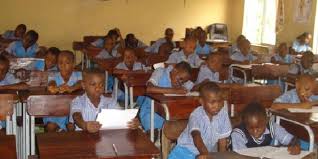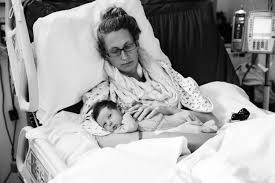
Cholera: Schools must provide potable water, enforce handwashing, experts say
In light of the recent cholera outbreak in the nation, public health experts have demanded that potable water and sanitary restrooms be provided in schools as primary and secondary schools begin their third term today.
The authors emphasised the importance of enforcing food hygiene protocols and recommended that school administrators carry out comprehensive food handlers' assessments on all food providers operating within the school premises.
The public health experts emphasised that these precautions were necessary to stop the spread of cholera, which is more dangerous for children than for adults.
The Lagos State Ministry of Health announced last weekend that there were 15 cholera-related deaths in multiple Local Government Areas of the state, along with 350 suspected cases and 17 confirmed cases.
Additionally, the Nigeria Centre for Disease Control and Prevention revealed on Thursday that, between June 1 and June 11, 30 cholera deaths were recorded across 30 states in the nation, totaling 65 confirmed cases.
The World Health Organisation states that cholera is a potentially fatal severe diarrheal infection that is brought on by consuming food or water tainted with the vibrio cholera bacteria. If treatment is not received, cholera may not recover.
In reaction to the cholera outbreak, the World Health Organisation, the United Nations Children's Fund, and the International Organisation for Migration convened an emergency meeting in Lagos State on Tuesday.
In an effort to stop the ongoing cholera outbreak in the state, Celine Lafoucrier, Chief of UNICEF Lagos Field Office, urged the Lagos State Government to provide potable water and sanitation facilities as soon as possible on Saturday.
In order to guarantee a sufficient reaction to disease outbreaks, she also advocated for the bolstering of healthcare systems.
Experts in nutrition and public health have issued warnings against eating fruits and vegetables that haven't been thoroughly cleaned.
Dr. Rotimi Adesanya, a paediatrician and public health physician, spoke and urged caution, reiterating handwashing and good hygiene habits to stop the disease from spreading.
He went on to say that teaching kids the right handwashing habits, such as how and when to wash their hands, is essential.
The physician also suggested teaching kids about good food hygiene, like washing fruits before eating them and covering their food to keep insects out.
"Schools ought to have facilities and good sanitation practices. Even though cholera is not a new disease, we still need to prioritise preventive measures like handwashing, sanitation, and hygiene. Refuse dumps around the home or school need to be cleared, and the surrounding area needs to be cleaned.
Purification of public water sources is also necessary. To eradicate any potential cholera, chlorinated solutions like Water Guard can be added to drinking water sources, according to Adesanya.
Speaking on the subject, public health specialist Dr. Babatunde Adewumi said that children are more susceptible to cholera mortality because their bodies contain more fluids than those of adults.
He clarified that while children's organs are more vulnerable to damage due to their smaller fluid reserves, adults have reserves of muscle and fat that help make up for fluid loss.
"One problem with cholera is diarrhoea, vomiting, and fluid loss," stated the public health expert. Adults are still able to resist physical changes in their bodies, but children's resistance is relatively low due to their developing organs and immature growth.
It is true that cholera can be fatal in adults as well; however, due to children's weaker immunity and rapid fluid loss, the mortality rate from cholera is higher in children than in adults. We therefore consider immunisation to be very important in hildren because they are susceptible, especially children under five.”
He added that common childhood behaviours like not washing hands and eating without proper hygiene make children more likely to get cholera.
The physician recommended that children be taught proper handwashing and hygiene practices again.
Advocates of breast and cervical screening, like Adewumi, warned that cholera could spread quickly in schools if students' hygiene is not closely watched.
He demanded that children's hygiene education and instruction, including proper handwashing, be reinstated.
"It is crucial for kids to wash their hands before they go to school, during their time in class, and whenever they are going to leave and return." In schools, handwashing should be strictly enforced.
It's not the use of hand sanitizer this time. We are discussing hand washing with water and soap. Teaching kids how to wash their hands is a good idea. In the event that the school is without water, parents ought to consider packing extra water bottles for their kids. However, the best way to wash your hands is under running water, so schools should have potable water available, according to the doctor.
In addition, the public health specialist asked school administrators to make sure that proper hygiene is strictly adhered to during meal preparation, storage, and serving, and to administer food handlers tests to all school food vendors.
Food should be consumed hot during this time, according to Adewumi, as the bacteria cannot survive on hot food.
He also emphasised the accessibility of drinkable water and clean toilet facilities in schools, stating that schools without toilet facilities, should “as a matter of urgency get probably a temporary toilet.”
The physician demanded that environmental agencies thoroughly inspect daycare facilities and schools to make sure these standards are being followed.
"Water used in schools nowadays needs to be purified. All of the equipment needs to be cleaned if they are using a water dispenser. Every school that is starting classes again should have access to clean drinking water.
If your school doesn't have one, you should find a backup source of drinkable water until things are resolved.
"The state's Ministry of Health should have a department named School Health that rises to its responsibilities to ensure that all these things are being put in place when we look at school health," the public health expert stated.
In order to stop the massive spread of cholera and other infectious diseases, he issued a warning against crammed classrooms and nursery facilities.
"Therefore, any school that lacks any of the facilities that I've mentioned should either close down immediately or provide them as a matter of emergency because the health of the children should come first right now," the doctor stated.





